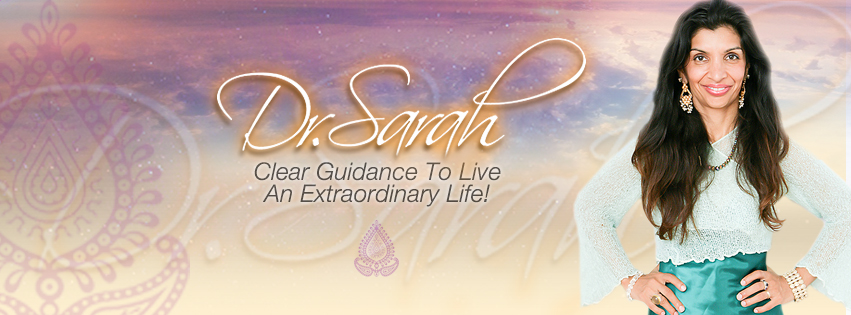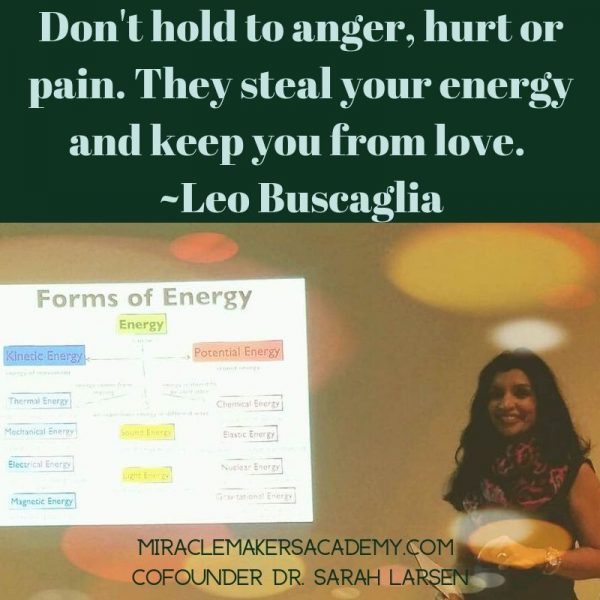
You already know when you stop being angry you will feel better!
Everywhere you look their are quotes about what a poison anger is in your system. And yet no one tells you how.
How do you take control of your health and wellbeing as it relates to anger?
How do you stop being angry? How do you transform anger into something positive?
Save this page to remember yourself! You werenot born angry. No one is born angry because that emotion doesn’t even begin to express in neonates till about 6 months of age.
First few months as a baby you primarily expressed basic emotions like pleasure and discomfort.
You have those emotions pleasure or discomfort.
On this page you will learn to transform, transmute and maybe even appreciate your self when you feel angry. Anger coms to help you heal.
Hurt and pain steal your pure energy and keep you from love.
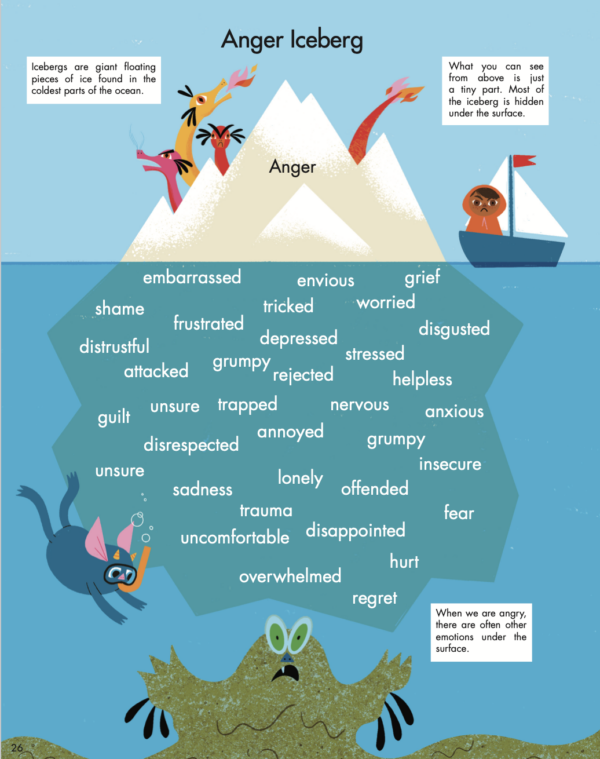
Who are you?
Are you 50% bad?
Does that mean the good news is,
you are 50% good?
Very good?
Who are you?
Are you Energy?
Yes, You are energy!
Pure energy!
Please consider that and this poem

According to Rumi
You are a Guest House!
Translated by Coleman Barks
This being human is a guest house.
Every morning a new arrival.
A joy, a depression, a meanness,
some momentary awareness comes
as an unexpected visitor.
Welcome and entertain them all!
Even if they’re a crowd of sorrows,
who violently sweep your house
empty of its furniture,
still, treat each guest honorably.
He may be clearing you out
for some new delight.
The dark thought, the shame, the malice,
meet them at the door laughing,
and invite them in.
Be grateful for whoever comes,
because each has been sent
as a guide from beyond.
Jalaluddin Rumi
Yet, you have modulators?
Definition of modulate.
1. to tune to a key or pitch.
2. to adjust to or keep in proper measure or proportion : temper.
You are energy and you have modulators!
Your modulators are your feelings!
When anger comes up. You are feeling again!
Yay!!!
Please remember not to judge yourself!
When fear comes it may show up as anger.
When courage comes it may look like anger.
Anger comes to create clarity in you!
Yes, If you can get angry, that means that you have something needing to make itself known to you!
Brene Brown says:
“Anger is a catalyst. Holding on to it will make us exhausted and sick.
Internalized anger will take away our joy and spirit; externalizing anger will make us less effective in our attempt to create change and forge connection! It is an emotion that we need to transform into something life-giving: courage, love, change, compassion, justice. Or sometimes anger can mask a far more difficult emotion like grief regret or shame and we need to use it to dig what we’re really feeling. Either way, anger is a powerful catalyst but a life-sucking companion.”
Anger came up to give you ait’s life-giving companions.
Your feelings!
Your feelings are pointing to a need!
Please start with self forgiveness. Which means acceptance!
Acceptance is crutial. If you will not accept your feelings then who will?
YOU ARE A GUEST HOUSE!
joy, is also there. Understanding and knowing that the good is in you!
Anger is about finding the source of
BLAME within you!
When you are blaming yourself or another there is more pain created.
When you address what you needed and what you need you begin to live
truly live!
This is the foundation of emotional strength, physical strength, mental strength.

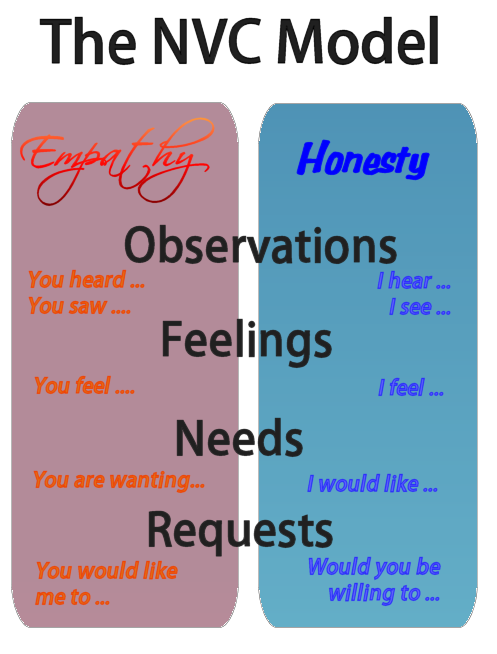
The Four Components of Emotional Intelligence
The Four Components of Emotional Intelligence
You may have heard of emotional intelligence, but you may not know exactly what it means, so let’s begin there. In essence, Emotional Intelligence (EI) is about recognizing and managing your emotions and those of others. There is a solid research basis from the fields of psychology, neuroscience, and business leadership.
There are four fundamental aspects of EI (as measured by the Emotional Competence Inventory, published by The Hay Group): Self-Awareness, Self-Management, Social Awareness, and Relationship Management.
Self-Awareness
This is how aware you are and how accurately you can assess your emotions. Most of us are so busy with the daily grind that we rarely take a step back and think about how we’re responding to situations and how we come across. The other source of self awareness is recognizing how others respond to us. This is often challenging because we tend to see what we want to see. And we tend to avoid the uncomfortable action of asking others for feedback.
To grow in your self awareness, consider building time for reflection into your day. Also consider getting into the routine of collecting specific feedback from people who will be honest and whose ideas you value. A large study that compiled thousands of data points found that leaders who sought out negative feedback were much more self-aware and effective than those who sought out positive feedback.
Self-Management
Self-management is your ability to control your emotions. This component also includes your transparency, adaptability, achievement, and optimism. A key factor is whether you react or respond to situations. Answer these questions:
When you get an irritating email, do you write back right away?
Do you sometimes find yourself regretting how you handled yourself, wishing that you had been more calm and poised?
Do you lose patience or rush others?
If you said yes to any of these questions, you may be in the habit of reacting rather than responding. When you react, you do what comes naturally, which is going with the emotional part of your brain. When you respond, you act against what is natural, which is why it is difficult. You engage the rational part of your brain and select the best response.
Social Awareness
Your organizational awareness, focus on service, and level of empathy compose your social awareness. Improve your organizational awareness by fine-tuning your radar for the emotional climate in groups, and recognizing power dynamics.
Improve your service orientation by fine-tuning your radar for your customers’ or clients’ needs. Do this by first and foremost, always taking personal responsibility even when things aren’t going well. Other strategies to enhance your service orientation include being as available and responsive to your customers as possible, and coming up with a system to regularly gather feedback.
Relationship Management
Developing others, serving as an inspiring leader and catalyst for change, collaborating with a high-performing team, and managing conflict are part of relationship management.
You are high on this characteristic if others perceive you as likeable and you’re able to work well with diverse groups, even in the face of stress and conflict. As you can imagine, to do this requires the 3 characteristics we just discussed, plus finesse in dealing with others.
If you can create and communicate an inspiring vision and help them to do difficult things, such as embrace change, you are definitely high on this characteristic.
How do you fare and what can you further develop to enhance your EI and career performance?
Posted by Larina Kase at 02:18 PM in Building Emotional Intelligence | Permalink
“Of needs” in the context of Nonviolent Communication refers to the core concept of identifying and expressing one’s underlying needs when communicating, which is a crucial element in the NVC model, allowing for more empathetic and constructive interactions by understanding what motivates a person’s actions beyond just their behaviors or words.
Key points about needs in Nonviolent Communication:
Central to the process:Identifying and expressing one’s needs is considered the most important step in Nonviolent Communication, as it helps to move beyond blame and judgment towards genuine connection.
“OFNR” model:When practicing NVC, the “needs” component is part of a four-step process: Observation, Feeling, Need, and Request (OFNR).
Universal human needs:Nonviolent Communication draws on the idea that all humans share fundamental needs like safety, love, belonging, respect, and autonomy, which are considered when expressing one’s needs.
Example:
Instead of saying: “You always leave the dishes dirty, which makes me so frustrated!”
With NVC: “When I see the dishes piled up in the sink, I feel overwhelmed because I need to feel like we are sharing the responsibility of keeping our home clean.”
Darling Miracle Maker, remember how important it is. This now the moment you are in!
How important this life is. How important you are! You are so important! Yes, so important and maybe not to the world but to you. To you, you should be so important
MAKE THE CHOICE TO BE IN THE CURRENT MOMENT AND TO BE IMPORTANT TO YOU!!!
One thing that you can do right now is to make the Choice to be part of something greater than yourself. You can Gain Access to the Academy and make you important to you within the academy!
You become you, important to you! You become important to the people there! You then carry this feeling, wisdom, and possibility into everything in your life!
Miracle Maker!
Do you love yourself enough to give to yourself? Your energy is precious and you can use it to build you and all that is important to you!

MAKE THE CHOICE TO BE IN THE CURRENT MOMENT AND TO BE IMPORTANT TO YOU!!!
First comes the commitment. Your choice to Gain Access to Miracle Makers Academy is you choosing you!
YOU GIVE VITALITY TO YOU!
the power giving continuance of life, present in all living things. “the vitality of seeds”
TAKE CONTROL OF YOUR HEALTH AND WELL-BEING:
Give yourself
the state of being strong and active; energy.
GROUP ENERGY comes to you and you become “the vitality” of the seed you are!
Miracle Maker!
Do you love yourself enough to give to yourself? Your energy is precious and you can use it to build you and all that is important to you!
Join Now: https://www.miraclemakersacademy.com/store/NHMYoh9B

Lisa Garr host of the Aware Show and Producer, Gina Salvati with Dr. Sarah at KPFK 50th Anniversary Celebration
Wellness Wednesday| Energy Healing | Medical Intuitive Readings | Become A Medical Intuitive
YOU MUST BECOME YOUR OWN Medical Intuitive for you!
As a graduate of Medical School, I can tell you in detail what you must become to be able to survive and thrive in our current day medical models!
Scientific studies show that you can transform your physical body with specific mental training. You can turn on parts of your brain that aren’t typically used and can even change the physical structure of your brain itself.
Wednesdays at 6 pm Pacific Time,
Wednesdays 9 pm Eastern Time,
6:30 AM Thursdays, in Pakistan, India, Nepal, & Bangladesh
11:00 AM Thursdays, in Canberra ACT, Australia
(Put this Link on your Calendar NOW
or Yes ~sign up for the newsletter to get reminders!)
Join Zoom Meeting https://zoom.us/j/148851872
One tap mobile
+16465588656,,148851872# US (New York)
+16699006833,,148851872# US (San Jose)
Dial by your location
+1 646 558 8656 US (New York)
+1 669 900 6833 US (San Jose)
Meeting ID: 148 851 872
Find your local number: https://zoom.us/u/abhDfbrJKD
Know your Story through the eyes of LOVE, POSSIBILITY, and THE GREATEST GOOD YOU CAN CREATE!
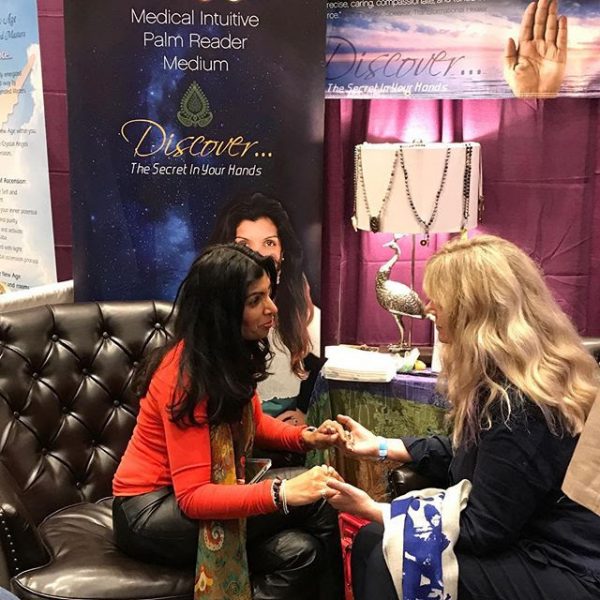
“My sessions with Dr. Sarah Larsen were one of the most extraordinary healing experiences I have ever experienced.
She has an innate ability to scan the body and intuitively diagnose areas in the body that need support via physical touch, nutrition, or emotional support.
I am in the Health and Wellness field and have worked with many health experts and practitioners and I can honestly say that Dr. Sarah is one of the best!
I was in a physical crisis situation a few months ago and Dr. Sarah spent three sessions with me and brought me from an acute place of anxiety to a restored place of physical and emotional balance.
Her nurturing and patient caring was remarkable and I am forever grateful for her support. I highly recommend Dr. Sarah Larsen.”
~ Dawna Shuman, Lighthouse PR
In our session, I will scan your body to diagnose the source of your physical and emotional blocks, the source of your discomfort and pain, and the source of your mental and spiritual blocks that unconsciously contribute to your physical suffering.
Call me at 424-903-6633 with any questions!
I love you so much!
Warmly,
Dr. Sarah Larsen
P.S.
Consciously make a choice. Understand that the possibility of peace is here with you. You are important. You are especially important to Miracle Makers Academy Members!
Join Now: https://www.miraclemakersacademy.com/store/NHMYoh9B?cid=ec4f317d-aabc-44ec-91f8-bef6202a0a43
Two biomolecules from the family of catecholamines play the main role when getting angry. We are talking about the hormones. Epinephrine and norepinephrine, also known as adrenaline and noradrenaline. Upon release, these molecules provide your system with energy and strength for several minutes.
What is released during anger? Physiology of Anger. Like other emotions, anger is experienced in our bodies as well as in our minds. … As you become angry your body’s muscles tense up. Inside your brain, neurotransmitter chemicals known as catecholamines are released causing you to experience a burst of energy lasting up to several minutes.
What is the chemical for anger? Epinephrine
Epinephrine which is also known as adrenaline is a chemical compound with formula (HO) 2C6H3CH (OH) CH2NHCH3 and is released while becoming angry. Epinephrine is among the chemicals that are released by the adrenal gland when an individual experiences anger or any other form of stress.
Epinephrine and non-epinephrine are the main chemicals which play the vital role in chemistry behind anger. In the absence of these chemicals, the body wouldn’t be able to deliver off any reactions while you are in anger or in any other emotion that has involvement of adrenaline.
- Epinephrine:
Epinephrine which is also known as adrenaline is a chemical compound with formula (HO) 2C6H3CH (OH) CH2NHCH3 and is released while becoming angry. Epinephrine is among the chemicals that are released by the adrenal gland when an individual experiences anger or any other form of stress.
Epinephrine lets the amygdala to send signals to the brain front lobe which then allows neurotransmitters which speed up your heart rate and display other signs of you becoming angry.
- Non-epinephrine:
Non-epinephrine which is also known as an adrenaline rush is a chemical compound with formula (HO) 2C6H3CH (OH) CH2NH2. This is the chemical that monitors your heart rate and blood pressure. A decreased amount of non-epinephrine is generally the depressed people characteristic.
This chemical is responsible for your decisions making related to handling the situation in a positive way or a negative way. Non-epinephrine gives an individual strength and motivation for defending themselves in extremely serious situations.
When we get angry, the heart rate, arterial tension and testosterone production increases, cortisol (the stress hormone) decreases, and the left hemisphere of the brain becomes more stimulated.
Anger, Compassion, and What It Means To Be Strong | Russell Kolts | TEDxOlympia
And a lot of my work involves using compassion-focused therapy
to help people work with emotions like anger.
Anger can be a tricky emotion to work with
because it can feel really powerful in us.
So even when we can see that our uncontrolled anger
is causing lots of problems in our lives and in our relationships,
we can be reluctant to give it up.
We like feeling powerful.
We like feeling strong.
And that’s why I think
if we’ll really be able to commit ourselves
to work with emotions like anger,
we have to discover new ways to be strong
and that’s where compassion comes in.
Anger starts in your brain
https://www.sciencelass.com/mind-and-brain/science-anger/
There is a small region in your brain which scientists call the amygdala. This compartment of the brain processes information related to your emotions. After that, it triggers specific reactions in your body.
For example, it signals the production of chemical molecules. This happens to send an alarm to your body in order for you to be alert. When you get angry, your brain orders the release of neurotransmitters called catecholamines.
Epinephrine and norepinephrine
Two biomolecules from the family of catecholamines play the main role when getting angry. We are talking about the hormones. Epinephrine and norepinephrine, also known as adrenaline and noradrenaline.
Have you heard about the adrenaline rush?
Upon release, these molecules provide your system with energy and strength for several minutes. So, you may attack someone. No, please don’t do that, violence is not the solution…
But in fact, our body prepares us to act against something or someone who caused our anger. That’s why you feel pumped up and ready to go to war. Adrenaline makes your senses alert and even makes you feel less pain… whoa… We feel like a superhero!
What are other effects of the hormones in our body? Epinephrine and norepinephrine lead to the increase of blood pressure, an accelerated heart rate, and faster breathing. Your heart muscles contract and your blood vessels constrict.
Sweating and pupil dilation can go with these effects. Blood pumps through your extremities to get you ready for action. Now you know why enraged persons often have red faces…
What about boiling blood? No, that doesn’t really happen. If your blood boiled, it would turn to jelly and you would die immediately. The phrase does not have a literal meaning…
Why do we do feel anger? Anger has a lot do with thinking. We are thinking of a rule or a deal in a situation. We think that a certain rule is violated or a promise not held.
Let’s say you order 10 pizzas for a house party, but the delivery guy just brings 5 and then behaves rudely. Your brain understands (or thinks) that there is an unjust situation. You get angry…
Actually, the reaction of our body to anger and fear are very similar. The released neurotransmitters are almost the same in both feelings. If you decide to panic and run away or get aggressive and want to fight, has to do with your thoughts.
However, scientists also state that there are some characteristic physiological differences, too. For example, anger raises our body temperature, whereas fear leads to its reduction.
How your body manages anger?
Now we know what happens in our body when we get angry. But what we don’t know is how our body signals that we should not be aggressive or enraged.
How to control oneself?
What is the mechanism in our brain that relates to anger management?
The place to look at is the prefrontal cortex. It is the region in your brain which enables you to control your emotions. It gives you the ability of judgement.
Imagine a good angel sitting there and telling you not to react in an aggressive way. That’s the cortex. And the devil resides in the amygdala. In principle, we observe a neuronal war between the amygdala and the cortex, the bad and the good.
Scientists have found that the left part of the prefrontal cortex is associated with anger and aggression. If that region is switched off, you will succeed and act like Dalai Lama or Gandhi…
What makes you angry?
Studies have pointed out three main things that make us angry:
Anger appears when your expectations are not fulfilled;
Anger occurs when you see some things as a threat;
Anger appears as an attempt to hide other emotions.
A US survey on people’s reaction towards terrorist groups demonstrates point no. 2 very well. The survey analyzed people’s feelings of anger from a group who were portrayed as terrorists. The results showed that participants were most filled with anger at those groups, which allegedly threatened their country.
Dr. Ronald Potter-Efron, a psychology therapist and the author of the book “Healing the angry brain”, lists several factors for the occurrence of anger. Among them are frustration, stress, drug abuse, cultural effects, and bodily dysfunctions deriving from diseases.
Many studies prove that genetics are an important factor for anger. German scientists from the University of Bonn even found the genetical codes of anger. Minor mutations in the gene called DARPP-32 effect the levels of catecholamine compounds in the brain.
Guys, we are talking about a simple mutation of a “CC” code into a “TC” or “TT”. In a report in The Telegraph, one of the researchers Martin Reuter said that people with “TC” or “TT” “are not able to control their feelings as well as those without the mutation.” Blame it on the “TT” when you flip out the next time…
5 Ways to be less angry
To be able to keep your cool is not as easy as said. How should we do that? You know that sometimes there are situations where we freak out. The amygdala is so fast with the warning that our cortex is not able to check if the reaction is reasonable.
There are also people who have serious anger disorders. Examples are the Intermittent Explosive Disorder (IED) or the borderline disorder. People with IED tend to have sudden outbursts of anger and aggression. Don’t be afraid… The fact you get angry doesn’t mean that you have a psychological illness.
We all get angry. If you still think that you get angry too often, there are easy ways to improve and relax. Check this list of 5 fascinating ways to reduce it:
Breathe slowly: Remember that the catecholamines make us do the opposite;
Meditate: Yoga and praying might help you to relax more often;
Write down: Yes, a 2008 study shows the positive influence of writing down the reasons for your anger. Maybe you should even start a diary…;
Do sports: Doing sports helps you to get rid of the negative energy; and hey, you do something for your fitness, too;
Sleep well and enough: it reduces stress, believe me; if you don’t, read this article.
Anger is not healthy
I am sure that you will think about anger in a different way if I tell you about the health issues. Anger and the heart have a close connection.
As mentioned above, epinephrine and norepinephrine constrict your blood vessels and make your heart pump harder. Thus, people who get angry often live with the risk of getting chronic high blood pressure and heart rhythm disorders.
Moreover, glucose and fatty acids are enriched in your blood. The increased levels of fatty acids can lead to plaques in your arteries. The walls of the arteries thicken and the vessels get narrow because of the accumulation of fats. This can result in a complete blockage of the arteries.
Scientists speak of atherosclerosis which can trigger heart attacks or strokes. Enraged people don’t look healthy to me, and now I know why…
You are allowed to be angry, but not aggressive
See, it is important that you try to reduce angry feelings. Even though it is not that easy, there are therapies and techniques. In doing so, you will keep calm and be anger-free, and live happier and longer.
And don’t forget that sometimes anger is a good thing to express feelings. Often you will feel better afterward. But you should remember not to be angry in an aggressive way.
Tell us what things make you angry, and what helps to control your anger in the comments below.
Now my own journey toward using compassion to work with anger
actually began when my son was born,
And I got to see the impact of my own anger was having on my family.
You see, I’ve got what you might call an angry or an irritable temperament.
One way to think of temperament is the idea that some people are born
having an easier time experiencing certain emotions.
Some of you, I suspect, are very easy going,
intend to take things in stride,
don’t get too worked up for the things that don’t go your way.
And If you like that, by the way, is good for you.
(Laughter)
It’s nice, it’s a nice way to be.
However, other of us will have a very different experience of life.
Some of you, for example, may have a much more anxious temperament.
You may notice feelings of anxiety
coming up in you easily, frequently, and sometimes, very powerfully.
If you like this, by the way, don’t beat yourself up for it.
It’s not your fault.
And I mean it, it’s not your fault.
We don’t get to choose our temperament.
But if we are going to have happy lives and good relationships,
we’ve got to take responsibility for working with what we’ve got.
And a part of what I had to work with is anger and irritability.
That really came to head for me when my son was about 3 month old,
and I was home, taking care about him one day,
and it was a day in which I had a lot of work that I really wanted to get done.
Parents among you will not be surprised to find out that on this particular day,
my son took about an hour and a half longer than normal
to go to sleep for his morning nap.
I remember, finally he goes to sleep,
I’m gently setting him down in the crib, and tiptoeing out of the room,
and just as I get in the another room and I sit down to work, the cry.
And with that cry I was filled with anger.
It took everything in me
not to rush across the hall, stand over his crib, and yell,
“Why can’t you just sleep?”
Luckily, that didn’t happen, but something did.
The intensity of the anger I felt at my infant son
for doing nothing more that not sleeping
at the exact moment I wanted him to sleep,
shocked me awake,
and I knew that if I was going to be
anything like this sort of father I wanted my son to have,
I had to do something about my anger.
Now It turns out
there are actually quite a good number of effective anger management techniques.
That this is true: if you are someone who struggles with anger,
there are some powerful tools out there that you can use.
The tricky bit is getting people to use those tools.
It’s neither easy nor fun to admit
that you have problems with anger and to commit yourself to working with it.
Let me ask you a question:
have you ever said or done something out of anger
that’s caused terrible pain in the people you love the most?
Me too.
How does it feel to admit that to yourself?
Do you find yourself wanting to move toward that experience
or to move away from it and never waited?
It can also be a pretty lonely thing; to be someone who struggles with anger.
Think about it.
When we see someone who is anxious, what do we want to do?
We want to approach and reassure them.
When we see someone who is sad, we want to approach and comfort them.
What do you want to do when you see someone
who’s angry and hostile?
You want to get the heck out of there, right?
Of course you do, we all do. That’s part of what anger does.
It pushes people away.
But what that means
is that you or someone who really struggles with anger
can get very used to the sight of other people walking away
because they don’t want to be around you.
And that’s hard.
For me, although the feeling of my anger felt powerful in me
when I really took a look at it,
I discovered that behind that anger
were a lot of other much more vulnerable feelings and emotions:
the fear that I couldn’t control my own feelings,
the sadness that my behavior was so different
from the man I wanted to be,
and the shame of watching the people I loved the most
walking on eggshells around me
afraid that they would say or do some random thing that’d set me off.
And in the face of all that scary stuff, I did what a lot of folks do:
I avoided it.
I just tried not to feel it, distract yourself,
blame other people, rationalize. those sorts of things, right?
And over time, I discovered, through experience,
what a growing body of scientific research is demonstrating
which is that working with difficult emotions by avoiding them
doesn’t work and often makes things worse.
Now being a good father was important to me though,
so at this point, I took decisive action in the way we, academics, do:
I began to read.
(Laughter)
And one of the books I read was about the His Holiness, the Dalai Lama of Tibet.
And in that book, I saw a vision of the sort of man I wanted to be,
the sort of father I hoped I could become.
Don’t get me wrong, I have no aspirations to be the leader of a worldwide religion,
but it was that courage, that wisdom, the kindness, the compassion.
You see, compassion involves allowing ourselves
to be moved by suffering, the suffering of other people,
and even our own suffering.
And experiencing a commitment, a desire to help,
to obliviate that suffering.
Compassion begins with courage,
the courage to face the things that make us uncomfortable,
and sometimes, the courage to face
the things that scary us the most about ourselves.
Compassion gave me a way to work with my anger,
not by turning away from it and avoiding it
but by turning towards it.
not with condemnation but with kindness and a commitment to do better.
And over time, I discovered
that when I stopped blaming other people for my anger
or beating myself up for having it,
I could use a lot of those powerful anger management tools
I told you about before,
and over time, I could help other people do the same.
Now, as an aside, if this sounds easy, let me assure you, it was not.
For me, admitting I had problems with anger and working with it,
it was like being Frodo marching in the Mordor.
(Laughter)
It was ugly, it was scary. A lot of times I didn’t think I could do it.
But over time, I discovered
that the more you move towards it, the easier it gets
and the stronger you get.
And after a while,
all those terrifying emotions just stopped being so terrifying
and start being normal human feelings we can acknowledge and work with.
Let’s try an exercise really quickly if you would.
I’d like you to bring to mind a situation in which you recently struggled.
Maybe a time when you were feeling powerful feelings of anger,
sadness, or fear, shame, or whatever you struggled with.
And as you look back on that struggling version of you in that situation,
try to look back with compassion.
The way you would relate to someone you dearly cared about and wanted to help.
See if it’s possible to see
those powerful feelings and thoughts you had at that time,
not as something that was wrong with you
but as normal human reactions that we have in the face of difficulty.
If you were at your very best,
you’re kindest, you’re wisest, you’re most courageous,
you’re most compassionate,
how would you understand what was happening there?
If you could go back and whisper into the ear
of that vulnerable version of you, in that situation,
what support or encouragement might you offer
to help yourself be at your best in that moment,
as you face that difficulty?
You see, that’s compassion,
and if you’re interested in bringing that compassion
in the every moments of your life
you might try three things; it’s a good start.
The next time you noticed yourself filled with anger, shame,
or some other emotion you’re struggling with,
instead of just going and acting on that emotion
or denying and avoiding it, beating yourself up for having it,
what if you just took a moment
to just compassionately acknowledge what was happening in you?
To notice, “Wow, I’m really angry right now.
I’m really struggling, this is really hard.”
That’s number one.
Second thing: at that moment,
see if you can take a moment to slow things down,
to take a minute or two just slow down your breathing.
Slowing down the body can help slow down the mind.
Anger tries to convince us that we have to act right now,
but we don’t have to believe it; we can take a moment,
or to balance our emotions first, and then work with the situation.
Now, if this sounds awfully a pie in the sky,
let me say that I’ve used compassion-focused therapy
to work with men sentenced to decades in prison, many of them for violent crimes
–and yeah, when I walked in the prison looking like this
talking about compassion, initially I get some eye rolls.
But over time, these men discover what I had learned
that the anger that felt so powerful in them
was often a method they used to run away
from more vulnerable feelings and emotions like sadness or shame,
and that compassion gave them a way to work with all of that,
and these men didn’t just stopped working with anger either,
they actively looked for ways to support one another;
and then, they looked out into the world and they asked more questions.
Questions like how can I help people out there?
So they don’t end up in here.
Even from prison, how can I help?
And if they can do it, so can we.
That’s true strength.
That’s compassion.
